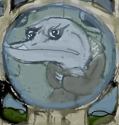|
On the subject of the Russo Japanese War and lessons (not) learned. https://www.dtic.mil/cgi-bin/GetTRDoc?AD=ADA430841 http://www.historynet.com/russo-japanese-war-japans-first-big-surprise.htm
|
|
|
|

|
| # ? May 17, 2024 13:26 |
|
Shimrra Jamaane posted:But then they lost nearly as many troops as the French. So what happened? This in itself is telling, when you say the attackers lost nearly as much as the defender. Usually you're looking at at least 2:1 in favor of the defender. More on a heavily fortified strongpoint like Verdun.
|
|
|
|
From what I know, Verdun was not an attempt to "bleed the French dry" at no point, ever. The Germans attacked the city for several reasons. One, Verdun was right in the middle of a major salient in the French line, and capturing it would force the French to fall back on quite a large part of the front. This would drive a wedge between the French forces in Alsace-Lorraine and the rest of their line. Given the limited manpower the French had at the time and the distance between Verdun and the British, that sector of the front would be difficult to reinforce. Another one was that Verdun was a major transport and logistics hub: there were 14 (!) rail lines leading to it on the German side of the front. Capturing the city would allow von Falkenhayn's staff to throw their reserves at any part of the front virtually at will, which would further threaten the French at Nancy. Verdun was also the key to assuring the safety of Metz and capturing resource-rich areas of Lorraine, including the Briey basin. Furthermore, there were also symbolical reasons. It was at Verdun that Charlemagne's empire was split between his grandsons in 843. It was also the last city the Prussians had left after France paid its reparations following the war of 1870. It was supposed to be the war trophy for the Crown Prince and to restore the prestige of the Hohenzollerns. But the most critical reason for the offensive was that Verdun was pretty much undefended by the start of 1916. As strong as the city's fortifications were, they were critically undermanned and with very little capability of bringing in reinforcements - which, as you may remember from the last couple of pages, was a large part of why it was so easy to defend during WWI. There were only three railways to Verdun on the French side, one of which was cut by the Germans at St-Mihiel. Another one was too close to the front and would be quickly destroyed or overrun in the event of an offensive. The third was a local rail line from Bar-le-Duc and was nowhere near what was needed to actually maintain the defence. Verdun also had very few guns. The French general staff took them away in August 1915 for offensive operations in Champagne. The forts were thus severely under-equipped, but that was okay, since Joffre's staffers did not believe in old-style fortifications anymore after what the Germans did to Liege, Namur and Maubege in 1914 and the forts were therefore abandoned. By late 1915, trenches were the only defence of Verdun and even that was maintained mostly for political reasons. This is one of the points where the "meatgrinder" hypothesis seems weak to me. If you wanted to butcher the French, why not pick a place where there are already some defenders? Why pick a place you can easily take with little casualties to either side? The political focus is definitely a reason, but there were other places that were also important to the general public. Verdun was likely to fall quickly and without a significant French presence, trying to stage a war of attrition there would quite probably go better than expected. What's more, the Germans arranged for the offensive in deep secrecy. Their trains moved at night, bringing to the Verdun sector nine additional divisions of infantry, thirteen 420 mm calibre howitzers and many more heavy guns. They also brought additional air units to hamper the French reconnaissance and made diversionary preparations in other areas of the front. Why would they do that if they wanted the French to just come and stick themselves into German guns? If the Germans didn't have to postpone the attack from February 12 to February 21, they would have likely taken Verdun, since it wasn't until around that time that the French started to bolster their defences. Joffre didn't inspect the sector until February 19. The first mention of the "meatgrinder" plan can be found in the "Christmas memorandum", allegedly given to the Kaiser on Christmas Day of 1915. However, my sources say that Gerd Krumeich, a German historian, has conclusively proven that the memorandum is a fake that was written much later and served only to save Falkenhayn's face after his offensive has stalled. I can't evaluate that myself, since I don't have access to the guy's work, but I'm inclined to believe that claim. However, the French had sensed that this was the case even before the end of the war, and this is, I'm told, also the way it appears to be based on Kronprinz's memoirs and German correspondence.
|
|
|
|
My source for it being a deliberate plan was a college professor, but he didn't go into as much depth as you did above. He claimed the goal was not to take Verdun itself, but the high ground around it, putting the defenders in a killing zone. For the reasons you listed, the French would feel obliged to try to hold it, despite their losses. I don't know which story is correct. Of course academic opinions can swing back and forth on all "what was he thinking?" debates.
|
|
|
|
I misremembered my facts from The Price of Glory but Tevery Best gave an excellent explanation of what I was getting at from my earlier post.
|
|
|
|
It is also important to note that the western front in WWI was a historical anomaly. By the next war, the offensive forces were once again able to outstrip the defenders' ability to reinforce and dig in. Or, perhaps, the time and area it took for an attack to stall was much greater - years and thousands of miles of Russian steppe, as opposed to hours and a few hundred meters of French mud.
|
|
|
|
Mr. Sunshine posted:It is also important to note that the western front in WWI was a historical anomaly. By the next war, the offensive forces were once again able to outstrip the defenders' ability to reinforce and dig in. Or, perhaps, the time and area it took for an attack to stall was much greater - years and thousands of miles of Russian steppe, as opposed to hours and a few hundred meters of French mud. Take a look at the Battle of the Hurtgen Forest. That's still a thing. As for Verdun, the town itself wasn't the objective, the Place Fortifee de Verdun was. The town itself sits in a depression ringed by high ground occupied with very modern (at the time) fortifications. By this point in the war, the German high command had realized that a breakthrough was not going to happen. Even if you did open a hole in the enemy lines, you'd have to move a whole army corps through it. What I think is the Germans picked an objective that would be damaging to morale and military operations, so that the French would be more open to diplomacy skewed toward Germany as the victor.
|
|
|
|
Shimrra Jamaane posted:But then they lost nearly as many troops as the French. So what happened? Well, there were a ton of reasons, but to keep it brief: - They lost sight of their objective. Initially, the idea was that the actual physical terrain was irrelevant except for the advantages it provided to the artillery. Verdun gradually changed into the strategically meaningless but politically/culturally important thing that they'd hoped it would be for the French. - They seriously underestimated their opponents. The Allied resistance was far stiffer than they'd anticipated, particularly their counter-fire. They'd anticipated being in their optimal defensive position within days, instead it took months, and they lost far more men and guns than they'd anticipated. They eventually committed a huge percentage of the reserves that they'd been holding in place for attack elsewhere, which pretty much undid the whole strategy.
|
|
|
|
Tevery Best posted:This is one of the points where the "meatgrinder" hypothesis seems weak to me. If you wanted to butcher the French, why not pick a place where there are already some defenders? Why pick a place you can easily take with little casualties to either side? The whole point was to attack a relatively weak area, take up a position that was extremely strong, then await and push back the counter-attack. In order to do this, you needed: 1. A place that had advantageous terrain 2. A place that was not well defended initially 3. A place that, if lost, had to be retaken There might have been other options, but Verdun was one objective that clearly met all three of those criteria.
|
|
|
|
One of the lessons of the Somme was that the meatgrinder approach wouldn't necessarily deter the British and French, as long as they could keep lying to themselves about casualty rates.
|
|
|
|
Really the lesson of Verdun is if you can't capture your start line in a few days, don't spend the next 7 months trying to do so.
|
|
|
|
Raskolnikov38 posted:Really the lesson of Verdun is if you can't capture your start line in a few days, don't spend the next 7 months trying to do so. A lesson the French never learned until 1918.
|
|
|
|
Bacarruda posted:On the subject of the Russo Japanese War and lessons (not) learned. I know I sound like a broken record, but I can't recommend Citino enough. This column is interesting, and in Quest for Decisive Victory Citino goes into great detail to explain the "lessons learned" from the wars of the late nineteenth and early twentieth centuries.
|
|
|
|
So I'm reading a book on military superstitions that was published in 1915. It's German but it's written in Roman type instead of Fraktur, and sure enough the copyright information is in English. The author probably intended this for an international audience, but how do you buy books from someone you're at war with?
|
|
|
|
The war wouldn't last forever. Plus you could always sell to a neutral English-speaking party, like the US.
|
|
|
|
Ensign Expendable posted:The war wouldn't last forever. Plus you could always sell to a neutral English-speaking party, like the US. The book's not in English, just the copyright. (If you're interested in folklore studies in 1915, you know German.) But I didn't even consider the US, dumb of me.
|
|
|
|
a travelling HEGEL posted:So I'm reading a book on military superstitions that was published in 1915. It's German but it's written in Roman type instead of Fraktur, and sure enough the copyright information is in English. The author probably intended this for an international audience, but how do you buy books from someone you're at war with? Sell it through the Netherlands. Despite bans and whatever smuggling was done pretty openly.
|
|
|
|
a travelling HEGEL posted:So I'm reading a book on military superstitions When you've had time to digest it could you give us a highlights reel? v: drat. Grand Prize Winner fucked around with this message at 17:23 on Jan 12, 2014 |
|
|
|
Grand Prize Winner posted:When you've had time to digest it could you give us a highlights reel? You are literally asking for a shitpost.
|
|
|
|
I dunno, it's interesting in it's own right, and an insight into the mindset of soldiers of the time. At the least, you'd get to know what they're worried of happening.
|
|
|
|
I'd be interested in reading about military superstitions, too.
|
|
|
|
veekie posted:I dunno, it's interesting in it's own right, and an insight into the mindset of soldiers of the time. At the least, you'd get to know what they're worried of happening. It was a pun on "digest"
|
|
|
|
veekie posted:It seems the "spirit of the attack" thing had been botching wars up and down history. Mr. Sunshine posted:It is also important to note that the western front in WWI was a historical anomaly. By the next war, the offensive forces were once again able to outstrip the defenders' ability to reinforce and dig in. Or, perhaps, the time and area it took for an attack to stall was much greater - years and thousands of miles of Russian steppe, as opposed to hours and a few hundred meters of French mud.
|
|
|
|
Arquinsiel posted:It is also important to note that Verdun is part of the Metz fortified region that made Patton give up and go around. I always love the idea of a fortified region being such a slog that it shriveled the deathboner sported almost permanently by noted insane person and self-styled Alexander reincarnation George God Damned Patton.
|
|
|
|
The Entire Universe posted:I always love the idea of a fortified region being such a slog that it shriveled the deathboner sported almost permanently by noted insane person and self-styled Alexander reincarnation George God Damned Patton. Patton wasn't that great of a general so I'm not sure if how long he takes to overcome a fortified region isn't a great analysis of its effectiveness.
|
|
|
|
Raskolnikov38 posted:Patton wasn't that great of a general so I'm not sure if how long he takes to overcome a fortified region isn't a great analysis of its effectiveness. I think you're understating how difficult the fortifications in Metz and along the German border were. They really did serve to help the Germans stabilize the situation in 1944 and were a problem for the Allies. Without a whole lot of preparation(the allied command, too, thought that fortifications were not very important and provided little doctrinal assistance), it took a long time to deal with the Metz system and other fortifications away from the Norman coast. I think the idea people have that fortifications were some useless thing because they didn't hold back their opponents indefinitely is wrong-headed.
|
|
|
|
It's important to note that some of the most effective AFV's the US deployed during the War (Specifically the up-armored M4A3E2 "Jumbo" Sherman and the 90mm armed M36 Tank Destroyer) were given the green light for development not to deal with German tanks, but to help overcome the Siegfried Line.
|
|
|
|
I'm not saying they weren't useful just that Patton is not a particularly skilled commander.
|
|
|
|
Also relevant is how Patton got stuck in the same mindset of the "spirit of the attack" that previously caused problems in WWI and only later managed to overcome it. There is some irony that it was Driant, part of the same HUEG fort complex as Verdun, that made him give up. It is, in all reality, probably his best decision as a general even though he pawned the blame for failure off on an underling.
|
|
|
|
Why did Douglas MacArthur, having 8 hours of warning from the Pearl Harbor attack, not do poo poo to prepare for a Japanese attack? He didn't so much as get his planes off the ground.
|
|
|
|
Shimrra Jamaane posted:Why did Douglas MacArthur, having 8 hours of warning from the Pearl Harbor attack, not do poo poo to prepare for a Japanese attack? He didn't so much as get his planes off the ground. Actually, they did get their planes off the ground. Then, while waiting for permission to launch a strike against Formosa, they began running low on fuel, landed to resupply, and got blown to pieces by a continently timed Japanese strike. Irony! Edit: Really, there wasn't all that much any commander could have done to prevent the Japanese from landing or from taking the Philippines with what McArthur had available. The entire US Philippine defense strategy was based upon being able to resupply the islands with the US Pacific Fleet, and once that became impossible after the attack on Pearl Harbor the defense became untenable. Raskolnikov38 posted:I'm not saying they weren't useful just that Patton is not a particularly skilled commander. Not asking you specifically, but are there any good biographies on Patton or any other good resources for looking him up? Obviously you're not a tremendous fan of him, but I'm curious if there are any good sources that compare his reputation to his actual acomplishments. Acebuckeye13 fucked around with this message at 07:20 on Jan 13, 2014 |
|
|
|
Tell me about Joan of Arc. Is her story bullshit, or did she really have some sort of tactical/strategic savantism? Or waas she just lucky and used as a figurehead to rally around?
|
|
|
|
|
Anything interesting happen on Formosa in the second? I'm pretty sure it was a Japanese colony/protectorate since around the turn of the century, I was just wondering if there were any interesting battles on the island proper or if its importance was to the IJN or for tropical goods... maybe rubber and rice production?
|
|
|
|
Here, have some beautiful handpainted art presented by Red Army to their Finnish friends (timg'd for dog balls):   These should need no explanation...  "You are rotting in trenches, meanwhile Krauts are chasing your wives at home." The most common theme in Soviet propaganda, and not entirely untrue, either. I do like though how the artist has presented the German soldier as some dark Guido-like character. Also, no one in Soviet Union knew how to draw a German swastika apparently.
|
|
|
|
The nazi swastika is accurately depicted on the more professional propaganda work, but these trench doodles seem to be a lot more crass (and amusing), at the cost of accuracy.
|
|
|
|
Hahahaha! Where did you find them?
|
|
|
|
Hogge Wild posted:Hahahaha! Where did you find them? http://sa-kuva.fi/ (search for 'juliste') There's some hilarious gems buried beneath the 160 thousand Finnish army photos there. Like this message written to a church door:  "Fyck Fynland"
|
|
|
|
Frostwerks posted:Anything interesting happen on Formosa in the second? I'm pretty sure it was a Japanese colony/protectorate since around the turn of the century, I was just wondering if there were any interesting battles on the island proper or if its importance was to the IJN or for tropical goods... maybe rubber and rice production? The USN launched a large-scale carrier raid against Formosa in October 10-20 1944 to suck up the IJN's airpower reserves prior to the invasion of the Philippines at Leyte Gulf. The results were as or even more lopsided as in the Marianas Turkey Shoot: a 6:1 kill ratio in favor of the USN with ~600 Japanese planes shot down and dozens of small warships sunk or destroyed in harbor. The Japanese claimed to have sunk something on the order of 40 carriers and 12 battleships. In my opinion, the raid was also notable for its after-effects on the lead-up to the Battle of Leyte Gulf. It worked as far as depleting IJN airpower so badly that there was practically no aircraft and no pilots that could fly from the IJN carrier bait force (that would later be sunk at the Battle of Cape Engano), but the fact that Admiral Halsey and his staff didn't catch the IJN carriers at Formosa and that they didn't know that the IJN was flat-broke on planes meant that they were still on the verge of obsessed with finding and sinking them. As well, the ~100 USN planes lost during the raid coupled with the exertion of flying more than 2 000 sorties inside a week fatigued enough pilots that Halsey was operating with only 6 out of 12 carriers - the rest had to sit out the Leyte Gulf operation to rest and refit. While a doctrinaire response to spotting the IJN carriers would probably still have involved sending all of the fleet carriers against them anyway (concentration of force and all that), it perhaps stands to reason that Halsey might have left some CVLs to guard the San Bernardino Strait if he had some extra assets to play with. In the event, San Bernardino was only guarded by Taffy 3 and Halsey's squeamishness about not having enough fighters to provide air cover if he split up his forces didn't really matter because Ozawa's carrier force barely had any striking power anyway. Source: Sea of Thunder by Evan Thomas
|
|
|
|
I wonder what was the first "your wifes are screwing your allies soldiers at home" propaganda piece ever made.
|
|
|
|

|
| # ? May 17, 2024 13:26 |
|
Probably dates all the way back to ancient Sumer.
|
|
|




























